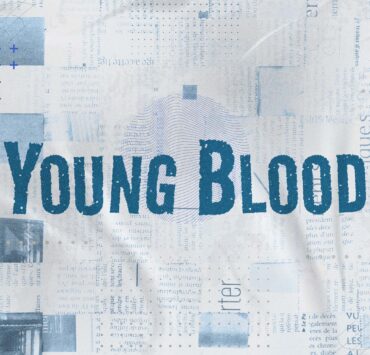Receipts of deception

In the Philippines, corruption has the creativity of a youth exchange program: you’re sent to buy Coke, but you return with toyo. It’s called substitution. We call it culture.
Take the Sangguniang Kabataan (SK). Supposedly a platform to give voice to the youth, children, really, both by pediatric and legal standards. Yet that voice often disappears somewhere between an HIV lecture in Bangkok and a “national convention” in Boracay, always charged to the people’s tab. Why fly abroad when the same agenda could be livestreamed on Zoom, with Jollibee delivery thrown in? The receipts will swear it’s all aboveboard. Not stolen, just wasted.
Boracay knows this performance well. Its hotels and ballrooms have hosted countless “conventions,” municipal summer outreaches disguised as leadership seminars; barangays from Palawan suddenly needing beachfront meetings. In 2022, during the preelection circus, a photo of all barangay captains in Leyte lined up for a secret group shot surfaced, as if democracy had booked itself a private beach.
But the cover always slips. A Facebook post uploaded too soon. An Instagram selfie in Shibuya Crossing. A boomerang of cocktails clinking against Boracay’s sunset. All captioned with the innocence of “Team Building.” Epic evidence of hypocrisy, taxpayer pesos bleaching on white sand while the rest of the country drowns in receipts.
Like the Duterte Youth party list, the SK is less about empowerment and more about dynasty-building. The concept sounds noble, but the execution is hollow. It doesn’t train leaders of tomorrow; it grooms the trapos of the future. Scrap it already. Why burn public funds on a mock congress of immaturity?
Of course, corruption doesn’t stop at kiddie councils. It thrives in bigger offices with colder air-conditioning. Tax evasion and corporate fraud are treated like white-collar “promo bundles”: pay a thousand pesos, walk away clean. A bargain for billionaires, an insult for everyone else.
Here, transparency functions like disaster relief in Tacloban, grand promises up front, expired goods on arrival. Receipts look official until you sniff the ink and catch the stench of a scammy aftertaste. Tacloban itself is the perfect metaphor. A city forever in cover-up mode: where typhoons bury accountability under relief goods, where “I shall return” became both prophecy and political slogan, where the battlefield of Leyte turned into a breeding ground for dynasties. A crossroads of history that somehow rerouted into a dead end of corruption.
Even transportation fakes its trails. A bus receipt stapled to a modern jeep proudly claims, “Irosin to Tacloban,” even if the trip never happened, and was never meant to. Why print such malicious resibos? To inflate costs, pad expenses, and justify ghost journeys. These fake tickets aren’t just sloppy paperwork; they’re laundromats for dirty money. A nation on the move, but only on paper.
The real trick? Paper that erases itself in three months. Snapchat for taxes. A Bureau of Internal Revenue that doubles as a magician’s guild: no paper trail, no tax trail, no problem.
Receipts then become ghosts, like jueteng bets or sachets of shabu, self-liquidating, untraceable, always absent when auditors arrive. And when discrepancies are caught? They’re never crimes. Always “clerical errors.” As if the typewriter, not the tycoon, cooked the books.
Meanwhile, corporations parade as saints. Their corporate social responsibility brochures sing hymns of integrity while their accountants compose psalms of evasion. They don’t “cheat” they “innovate revenue streams.” A marketing miracle that transforms plunder into branding.
And the penalties? A slap on the wrist, so soft it bounces back onto the cheeks of ordinary citizens. Not painful. Just humiliating.
In this country, receipts aren’t proof of payment. They’re proof of performance art. Toyo becomes Coke. Jeepneys travel to Tacloban without leaving the terminal. Corporations launder sins into sponsorships. And we, the people, are left holding slips of paper that fade as fast as our collective memory.
But every resibo is also a mirror. Corruption survives not because it’s ingenious, but because we allow it to masquerade as ordinary. Each ghost ticket, each vanishing trail of ink, is stamped less by machines than by our silence.
The cruelest receipt of all is not the fake journey or the missing revenue, it’s the future stolen with every fraudulent declaration.
And until the day we finally refuse to sign, until we say, with finality, “Hindi Coke ang toyo,” the receipts of deception will keep printing.
And we will keep paying.
Not just with pesos.
But with our tomorrow.
—————
Melben Jochico, MD, is a physician and editorial satirist who writes about Philippine politics, health care, and societal absurdities with humor and insight.

















